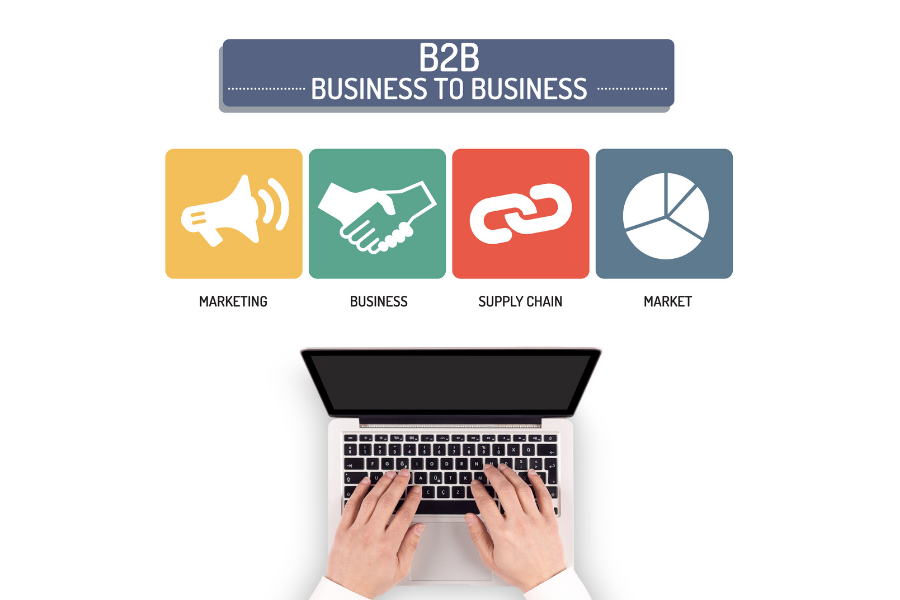Commercetools are leading player in the B2B (business-to-business) commerce space and is shaping B2B commerce trends with its innovative approach. Three key trends are emerging under commercetools’ influence. Firstly, B2B firms are transitioning to cloud-native, modular commerce solutions. Secondly, there is a heightened focus on data quality and personalization in B2B operations. Lastly, businesses are redesigning the B2B customer experience to meet evolving expectations. Commercetools is indeed at the forefront of driving these transformative B2B commerce trends.
Commercetools shape B2B commerce trends
Commercetools play a crucial role in shaping B2B commerce trends by providing the necessary tools that enable businesses to adapt to the evolving landscape. It empowers B2B firms to enhance their operations, improve customer experiences, and drive growth. Here is an overview of how commercetools contribute to shaping B2B commerce trends:
#1 B2B firms are shifting to cloud-native, modular commerce.
Commercetools is at the forefront of shaping B2B commerce trends, particularly in the area of cloud-native, modular commerce solutions. The traditional B2B landscape is undergoing a significant transformation as businesses recognize the immense benefits of migrating their operations to cloud-based platforms.
Commercetools provides B2B firms with the tools and technologies to make this transition seamless and efficient. By adopting cloud-native architectures, businesses can leverage the scalability, flexibility, and cost-effectiveness offered by cloud computing. This shift allows companies to adapt quickly to changing market demands, handle increased traffic and transaction volumes, and rapidly deploy new features and functionalities.
Furthermore, commercetools’ modular approach to commerce empowers B2B firms to build customizable, scalable, and future-proof solutions. By leveraging microservices and APIs (application programming interfaces), businesses can decouple various components of their commerce ecosystem and replace or upgrade them independently. This modularity enhances agility and enables businesses to adopt new technologies, integrate with third-party systems, and respond rapidly to evolving customer needs.
The shift towards cloud-native, modular commerce solutions facilitated by commercetools has numerous benefits for B2B firms. It reduces the reliance on legacy systems, simplifies IT infrastructure, and enables seamless integration with other digital tools and platforms. Moreover, it provides businesses with the scalability and flexibility needed to adapt to changing market dynamics, explore new revenue streams, and expand into new markets.
Commercetools’ leadership in promoting the adoption of cloud-native, modular commerce solutions is driving the transformation of the B2B commerce landscape. As more B2B firms recognize the advantages of embracing cloud technologies and modular architectures, they are turning to commercetools to leverage their expertise and stay ahead of the competition.
#2 A strong emphasis is placed on data quality and personalization
Data quality plays a crucial role in B2B commerce trends, as accurate and reliable data serves as the bedrock for making informed business decisions. Commercetools understands the criticality of data integrity and places great importance on ensuring high-quality data throughout the entire B2B commerce process. This includes data collection, storage, organization, and analysis.
Commercetools provides businesses with robust tools and technologies to effectively manage and maintain data quality. These tools often leverage advanced data validation techniques, such as data cleansing, deduplication, and enrichment, to ensure that the data being used for B2B commerce activities is accurate, consistent, and up-to-date. By maintaining data integrity, businesses can avoid costly errors, enhance operational efficiency, and provide a seamless customer experience.
Personalization is another area where commercetools is driving B2B commerce trends. In the B2B space, personalization refers to tailoring the shopping experience and offering relevant products, services, and content to individual buyers or business accounts. Commercetools enables businesses to implement sophisticated personalization strategies by leveraging customer data, preferences, purchase history, and other relevant information.
Through advanced personalization capabilities, commercetools empowers businesses to create unique and customized experiences for their B2B customers. This can include personalized product recommendations, dynamic pricing based on customer segments, targeted marketing campaigns, and streamlined purchasing workflows. By delivering tailored experiences, businesses can deepen customer relationships, increase customer loyalty, and drive higher sales volumes.
Commercetools’ emphasis on data quality and personalization is driven by the recognition that B2B customers have increasingly high expectations. In today’s digital age, buyers expect relevant and personalized experiences similar to what they encounter in their B2C (business-to-consumer) interactions. By harnessing the power of data and personalization, commercetools helps businesses meet these expectations and differentiate themselves in the competitive B2B marketplace.
Furthermore, the strong emphasis on data quality and personalization align with the broader trend of digital transformation in B2B commerce. As businesses increasingly adopt digital technologies and embrace e-commerce platforms, the availability of accurate data and personalized experiences becomes even more critical. Commercetools not only facilitates this transformation but also sets the stage for future advancements in B2B commerce.
#3 The business-to-business customer experience will be redesigned
Traditionally, B2B transactions have been characterized by complex and lengthy processes, often involving manual interactions, paperwork, and multiple touchpoints. However, the rise of e-commerce and digital technologies has prompted a shift in customer expectations, and businesses now face the challenge of providing a seamless and user-friendly B2B customer experience that matches the convenience and simplicity of the business-to-consumer (B2C) space.
Commercetools understands this changing landscape and offers a range of tools and solutions designed to redesign the B2B customer experience and shape B2B commerce trends. By leveraging commercetools’ platform, businesses can create intuitive and streamlined digital experiences that cater specifically to the unique needs of B2B customers.
One aspect of the B2B customer experience redesign is the implementation of self-service portals. Commercetools enables businesses to develop self-service portals where B2B customers can access relevant information, browse product catalogs, place orders, track shipments, and manage their accounts independently. This empowers customers to have more control over their purchasing journey, reducing the need for manual intervention and improving efficiency.
Another key component of the B2B customer experience redesign is the integration of seamless omnichannel capabilities. Commercetools allows businesses to provide a consistent and cohesive experience across various channels, including websites, mobile apps, marketplaces, and offline touchpoints. This ensures that B2B customers can seamlessly transition between different channels, allowing them to engage with businesses at their convenience while maintaining continuity throughout their buying journey.
Moreover, commercetools facilitates the integration of personalized and targeted experiences into the B2B customer journey. By leveraging customer data, such as purchase history, preferences, and behavior, businesses can deliver relevant product recommendations, personalized pricing, and tailored marketing messages. This level of personalization enhances the overall B2B customer experience by providing customers with highly targeted and relevant content, which ultimately increases customer satisfaction and drives higher engagement and conversion rates.
By redesigning the B2B customer experience, commercetools addresses the growing demand for enhanced convenience, efficiency, and personalization in B2B commerce. This trend aligns with the broader digital transformation taking place in the industry, as businesses recognize the need to adapt and evolve to meet the changing expectations of their B2B customers.
ConnectPOS: Seamlessly Integrate with Commercetools for Optimal Performance
ConnectPOS is a versatile point-of-sale solution that integrates effortlessly with Commercetools, providing a unified system for modern B2B commerce. This integration ensures real-time synchronization of inventory, orders, and customer data across all sales channels, enhancing operational efficiency.
Additionally, ConnectPOS offers advanced features such as multi-store management, customizable reporting, and robust customer relationship management (CRM) tools. By leveraging ConnectPOS, businesses can deliver a seamless and personalized customer experience, streamline their processes, and make data-driven decisions to drive growth.
Conclusion
Commercetools is at the forefront of shaping B2B commerce trends by enabling businesses to embrace cloud-native, modular commerce solutions, prioritize data quality, and deliver personalized experiences. Its innovative tools and technologies help B2B firms transform their operations, enhance customer experiences, and stay competitive in a rapidly evolving market.
To further optimize your business and leverage the full potential of Commercetools, integrate with a reliable POS system like ConnectPOS. Contact us today to streamline your B2B operations and drive growth.
►►► See our products: Magento POS, BigCommerce POS, Shopify POS, Woocommerce POS, NetSuite POS, Commercetools POS, Custom POS, White label POS, Customer Experience Solution and Next-Gen POS




